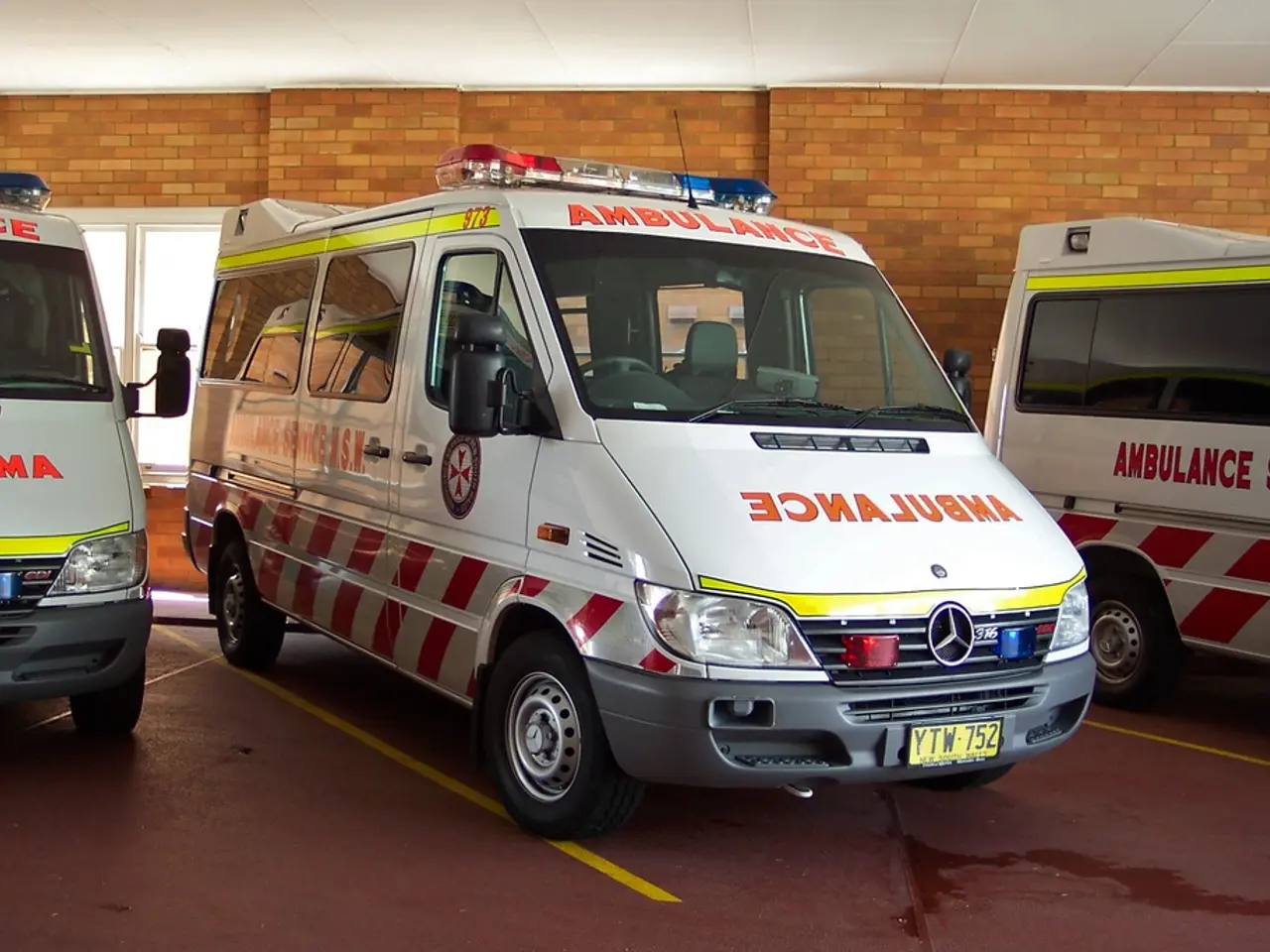Israel's blockade on Gaza strains hospitals, limiting medical assistance provided
In the war-torn region of Gaza, the humanitarian situation has reached a critical point, with the healthcare system on the verge of collapse and widespread famine and malnutrition affecting over one-third of the population.
The crisis has been escalating since October 2023, when Israel began its military operations and tightened the blockade, exacerbating an already fragile situation. Hospitals, schools, and shelters have been targeted, further straining the already limited resources.
According to the latest reports, at least 60,430 Palestinians have been killed and 148,722 wounded by Israeli attacks, with over 150,000 people injured in total. The humanitarian situation is particularly dire for the injured and chronically ill population, due to a lack of medicine and medical equipment.
Efforts are being made to alleviate the crisis. Aid, funded by the United Arab Emirates and supported by the World Health Organization, has been delivered in the form of food and medical supplies. However, these efforts barely scratch the surface of the urgent need.
Eight makeshift field hospitals are also in operation, but with fuel restrictions still in place, medical devices powered by generators are failing, endangering patients dependent on life-saving equipment. Gaza's remaining hospitals, only 16 partially operational, are struggling to treat the wounded.
Human rights organizations and medical groups have repeatedly warned about the dire situation in Gaza. The World Health Organization has renewed its call for large-scale food and medical aid to prevent a wider catastrophe. On July 29, WHO Director-General Tedros Adhanom Ghebreyesus warned of mass starvation, malnutrition, and disease in Gaza.
The crisis is extremely challenging to address due to ongoing conflict, restricted humanitarian access, and the destruction of infrastructure. The UN and agencies like the World Food Programme and the World Health Organization are delivering food aid, medical supplies, and therapeutic nutrition to vulnerable populations. However, the volatile situation limits consistent deliveries.
Humanitarian organizations, including the International Rescue Committee, are calling for fully open and unimpeded land crossings with fast, large-scale aid delivery alongside an immediate ceasefire to enable safe distribution to civilians and critical humanitarian response.
In summary, Gaza faces a severe, multifaceted humanitarian crisis shaped by famine, malnutrition, health system strain, and restricted aid. International agencies are actively providing emergency food and medical aid, but their efforts are hampered by conflict, restricted access, and infrastructure destruction. Resolving the crisis hinges on sustained and unrestricted humanitarian access and ending hostilities.
- Turkish President Recep Tayyip Erdogan has voiced his concern about the worsening humanitarian crisis in Gaza, highlighting the need for urgent international action to address medical-conditions, health-and-wellness, and general-news issues.
- Despite efforts to alleviate the crisis, including aid from the United Arab Emirates and operations of eight makeshift field hospitals, the supply of medicine, medical equipment, and fuel remains inadequate in Turkiye's view, leading to increased risks for the chronically ill and the wounded.
- The ongoing war-and-conflicts in Gaza and restrictions on humanitarian access have hindered the delivery of aid, making it difficult for organizations like the World Food Programme and the World Health Organization to provide consistent support and general-news updates.
- In response to the critical situation in Gaza, humanitarian organizations such as the International Rescue Committee are advocating for open and unimpeded land crossings, enabling fast, large-scale aid delivery, as well as an immediate ceasefire to ensure safer distribution to civilians and implement comprehensive solutions for the multifaceted humanitarian crisis.




